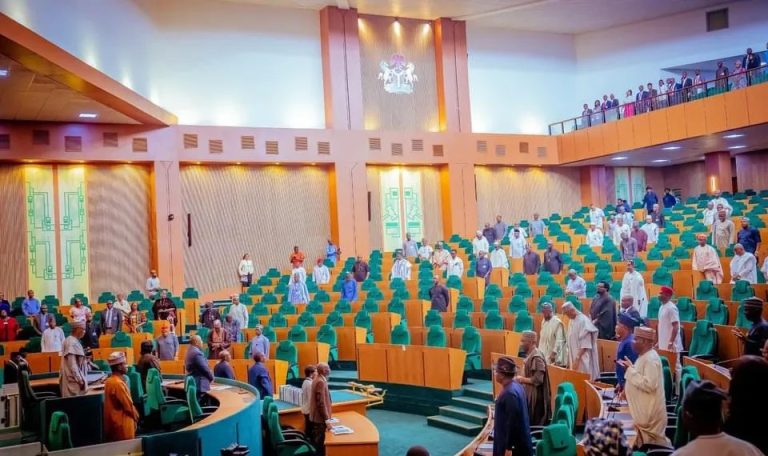From Ndubuisi Orji, Abuja
Members of the House of Representatives were sharply divided, yesterday, over a bill seeking to create special parliamentary seats for women in the national and state Houses of Assembly.
The bill sponsored by the deputy speaker, Benjamin Kalu and 13 others was eventually passed for second reading, after an extensive debate.
Prior to its approval, Patrick Umoh, in his contribution, kicked against the proposed legislation, saying it would run counter to the Constitution.
“We may sound very emotional about this bill but the reality is that when a bill is being considered in the House of Representatives, we must accord with the principles as enshrined in the Constitution of the Federal Republic of Nigeria. And the law is that every law that is inconsistent with the law of the Constitution of the Federal Republic of Nigeria is to the extent of its inconsistency void.
“My position is that we support equality for every individual. But we should oppose every law that challenges any position of the Constitution. The Constitution is clear in terms of equality, as it relates to gender, as it relates to race, as it relates to religion.
“We may be excited about the law today but we must look at posterity. We must look at the grundnorm of the Federal Republic of Nigeria, which is the Constitution. And the Constitution frowns at race, sex or religion,” he said.
Similarly, Billy Osawaru, cautioned the proponents to look at the implementation of the law rather than wanting to appear fine on television.
Contributing to the debate, Akin Rotimi, spokesperson of the House, said there was a “broad consensus” that it is necessary to have more women in parliament.
Kingsley Chinda, minority leader, supported the bill, saying parliament needs to correct the deficiency. “We must make deliberate efforts to solve problems where we see them,” he said.
Kelechi Nwogu from Rivers, corroborated Chinda’s argument, saying women should be given a “better opportunity” in politics.
Several other lawmakers who contributed to the debate, opposed the bill on the premise that it is against the provisions of the constitution on equal opportunity for all.
Ghali Tijani from Kano said rather than reserve special seats for women, political parties should deploy mechanisms to improve women’s participation in politics.
However, Chike Okafor appealed to the lawmakers to pass the bill bearing in mind that the deputy speaker was presiding. “The chief sponsor is presiding. Let us respect that fact.”
Earlier, one of the sponsors, Joshua Gana, while leading debate on the proposed legislation, explained that it is seeking the alteration of Sections 48 and 49 of the 1999 Constitution (as amended) to provide for one special seat for women, per state and in the Federal Capital Territory (FCT) effective from 2027.
He added that the bill is also seeking an alteration of “Section 91 to provide for three special seats reserved exclusively for women in the Houses of Assembly of each state of the federation which shall be spread across the three senatorial districts of each state…
“ Consequential amendments to sections 71, 77, and 117 to ultimately establish special constituencies reserved exclusively for women, ensuring their direct election into and participation in legislative houses and processes at both the federal and state levels.”
The special seats, according to him, are subject to review every 16 years. “The rationale behind this amendment is grounded in the principles of fairness and inclusivity. Globally, Nigeria lags behind in women’s representation in parliament, ranking among the lowest. Countries that have implemented affirmative action, like Rwanda and Andorra, have seen significant strides towards gender equality in governance.
“This bill proposes a temporary measure of seat reservation for women to catalyse similar progress in Nigeria, ensuring that women’s perspectives and priorities are fully integrated into our national and sub-national decision-making processes.
“The issue of gender equality and representation lies at the heart of our constitutional democracy. Despite the constitutional guarantee of equal rights, the representation of women in our Legislative Houses has been alarmingly low. “In the seventh, eighth and ninth Assemblies, women accounted for only 6.4 percent, 6.1 percent and 2.7 percent of the Senate respectively; and 6.4 percent, 3.05 percent and 4.7 percent of the House of Representatives respectively. These statistics underscore the urgent need for proactive measures to ensure equitable representation and amplify the voices of women in our legislative houses at the national and sub-national levels.”
Following the debate, Kalu proposed to withdraw the bill, noting that he may be biased as the lead sponsor since he was presiding.
“I will step down the bill until the day I am not presiding,” he said.
Ahmad Satomi from Borno countered Kalu, insisting that he should put the bill to voice vote, saying, “it does not matter if you are presiding.”
Subsequently, Kalu put the bill to a voice vote. The “Ayes” were louder than the “Nays” but he ruled in favour of the “Ayes.” Kalu referred the bill to the Committee on Constitution Review, after it was passed for second reading.
A similar bill was considered in the 9th assembly during the constitution amendment process. The Senate and the House of Representatives voted against it.
